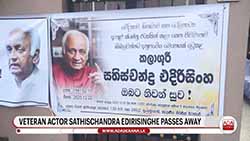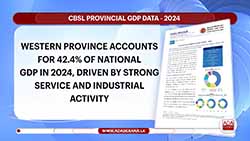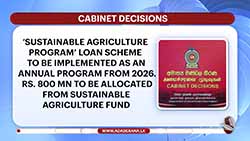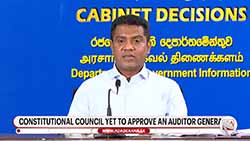Sri Lanka remains defiant of U.N. chief: IPS interview with Dr. Kohona
March 20, 2010 05:06 pm
UNITED NATIONS (IPS) - The Sri Lankan government continues to challenge U.N. Secretary-General Ban Ki-moon’s right to appoint a panel of experts to advise him on the human rights situation - euphemistically called “accountability issues” – following the end of a protracted conflict against a secessionist group widely considered a terrorist organisation.
“I am convinced it is well within my power as secretary-general of the United Nations to ask such a body to furnish me with their advice of this nature,” Ban told news reporters early this week.
“This does not in any way infringe on the sovereignty of
But the Sri Lankan government, strongly backed by the 118-member Non-Aligned Movement (NAM), is refusing to buy this argument.
In an interview with IPS U.N. Bureau Chief Thalif Deen,
“
In a letter to Ban last week,
The panel of experts was expected to advise the
secretary-general on “accountability issues” relating to post-conflict
The
“
Asked if he thought the secretary-general had a legitimate right to name such a panel, he said: “I will not get involved in the legal intricacies of this question which, of course, could be the basis of another enlightening discussion.”
“We, nevertheless, recognise the need to address this issue
in a manner that serves the best interests of
Excerpts from the interview follow:
Q: There are unconfirmed rumours that the secretary-general
is being pressured by some Western nations to take an unyielding stand against
A: I don’t know. However, it would be strange indeed if any country were to exert pressure on the secretary-general to penalise a small developing country which had almost single-handedly crushed a ruthless terrorist organisation, and which success enjoys the widest support within the country, as clearly demonstrated by the unprecedented success of the government of President (Mahinda) Rajapaksa at a series of elections, when better documented violations of international humanitarian standards are occurring elsewhere, even as we speak.
Q: Since the relationship between the United Nations and
A: I do not believe that the relationship with the U.N. is
deteriorating. There are continuing discussions with the organisation which is
normal. This is not the first time that we have been engaged in this complex
institution - and as a sovereign and equal member of the organisation,
Q: The Western powers failed to get
A: In the light of what has been said above, it is unlikely that this matter would reach such a pass.
Q: The NAM letter implicitly accuses the secretary-general of playing politics when it says that the Non-Aligned countries “are of the conviction” that the proposal to appoint a panel of experts on the eve of parliamentary elections in Sri Lanka “could do more harm than good to the country’s ongoing and relentless efforts aimed at reinforcing reconciliation and national unity.” Is he?
A:
Q: How negative is the reaction in
A: The reaction within Sri Lanka to comments made by the secretary-general and his spokesman, as underlined in a statement issued by the foreign ministry, is, unfortunately, extremely negative. We also have a recently re-elected president who is enjoying unprecedented approval ratings.
All parties need to reflect on the political consequences of
the course of action currently being discussed and remind ourselves of the
importance of permitting












